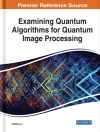This book describes a specific solution, known as Agile-SOFL, for bridging agile and formal engineering and discusses its benefits for realistic software projects. In this book, the author argues that formal engineering methods and agile approaches are complementary in ensuring high productivity while enhancing reliability. Agile-SOFL offers a highly practical and systematic method that strikes a good balance of efforts for enhancing both software productivity and reliability. Specifically, Agile-SOFL is characterized by five features: (1) systematic approach to constructing hybrid specifications for requirements-related faults prevention, (2) specification-based incremental programming for quality implementation, (3) specification-based inspection and testing for system validation, (4) automatic testing-based formal verification for the correctness of code, and (5) effective project management for high effectiveness and efficiency in applying Agile-SOFL.
The objective of this book is to help readers learn the latest effective Agile development concepts and techniques and to take them to the point where they can easily apply Agile-SOFL to develop their own software systems with a high productivity and reliability. The reader can also considerably benefit from this book by learning many newly developed concepts and principles in fault prevention, fault detection, verification of code correctness, and efficient project management.
विषयसूची
Introduction.- SOFL.- Three-step hybrid specification.- Specification-based implementation.- Specification based Inspection.- Testing Based Formal Verification.- Case Study 1 ATM system.- Case Study 2 SUIC card system.
लेखक के बारे में
Shaoying Liu is a professor at Hiroshima University, Japan, an IEEE fellow, BCS Fellow, AAIA fellow, and a pioneer in Formal Engineering Methods. He received a Ph.D. at the University of Manchester, UK, in 1992 and has experienced working at nine universities in China, the UK, and Japan, respectively. He developed the SOFL Formal Engineering Method and the techniques for specification-based program inspection, testing-based formal verification, and human-machine pair programming. He received 2022 and 2020 “Distinguished Research Awards” from IPSJ/SIGSE, the “20 Year ICFEM Impact Award” from ICFEM 2018, “IEEE Reliability Society Japan Joint Chapter 2016 Best Paper Award, ” and “Outstanding Paper Award’’ from ICECCS’96. He has served as an associate editor for IEEE Transactions on Reliability, Software Testing, Verification and Reliability (STVR), and Innovations in Systems and Software Engineering, respectively.












